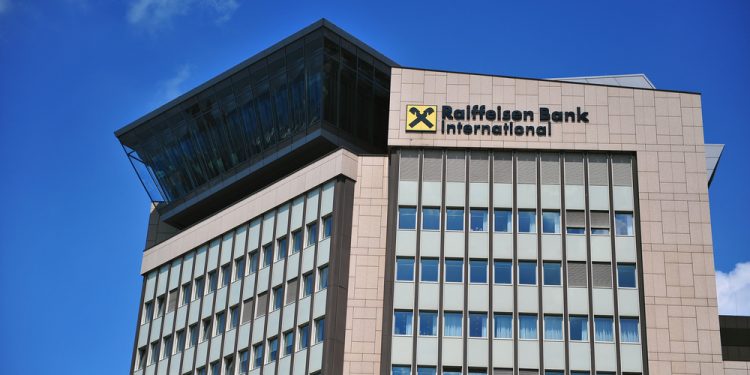Advertisement
The Austrian government has been active in transforming the country into an ideal place for the operation of suppliers of products and services based on blockchain technology. The government is testing the technology and trying to create a legal basis for companies to use it and even apply it in the economy.
Although only at the experimental stage, politicians and economists alike see the potential of blockchain for some industries.
Public administration reform via blockchain
The Austrian government is quite open to innovations from blockchain technology and cryptocurrencies. In 2019, a consortium of public administrative organizations established the Austrian Public Service Blockchain (APSB). Active participants in the APSB – i.e. those who run their own blockchain Nodes – include the Austrian Economic Bureau, the City of Vienna, the Federal Computer Center and the Vienna University of Economics and Business Administration. There is also Kontrollbank that is still in the setup stage.
On the private side, the Austrian Blockchain Initiative Association (BIA) was established in early 2021 to promote development. Austriapro, the developer of e-business standards, is working together with Austria's Blockchain Center to support the establishment of a secure infrastructure for the private sector's use of blockchain. Here, members of the association will jointly operate blockchain nodes in the form of "conjugate chains".
The first test project of APSB and BIA involved data certification and notarization. Digital fingerprints of files are placed on the blockchain so that it is possible to prove the unchanging nature of the data at a later time.
The Austrian Economic Bureau has also provided companies and startups with information about blockchain technology, including a detailed guidebook to help determine the suitability of blockchain technology with applications. They also formed a specialized blockchain team to exchange information, discuss initiatives and organize related events.
Increased interest from traditional financial institutions
The blockchain market in Austria and its application sectors are constantly changing with the push of governments, Fintech companies and small financial institutions. Areas of application include cryptocurrency trading, mining, custody and payment services, as well as financing through initial coin offerings, initial token provision, and security token provision.
Recently, traditional financial institutions have also been attracted to decentralized technology. Raiffeisen Bank , Austria's second-largest bank, has begun experimenting with its own euro-pegged stablecoin in the fall of 2020. Employees can use it to make purchases at the company's café.

Raiffeisen's partners are also involved, such as Volksbank Raiffeisenbank Bayern Mitte which has been offering Bitcoin (BTC) investment advisors since 2021, and plans to offer cryptocurrency trading services to clients this year.
Oesterreichische Nationalbank (OeNB), Austria's central bank, is also experimenting with blockchain. In 2021, the initiative project combining delivery versus payment, or DELPHI, is launched with the goal of examining the issuance of federal bonds versus the issuance of digital euros. DELPHI participants include OeNB; Austria's Federal Finance Agency, the country's public debt regulator; OeKB CSD – specializing in centralized securities depository and a subsidiary of the credit institution Oesterreichische Kontrollbank.
Austrian financial institutions are studying how to implement and pay federal bonds using blockchain technology. The OeNB also plans to develop a central bank digital currency.
In September 2020, the Vienna Stock Exchange listed a Bitcoin product, becoming the third official regulated market in the world. As a result, both Bitcoin and Ether (ETH) products from Swiss publisher 21Shares AG can be traded on the exchange. In August 2021, the Vienna Stock Exchange also announced the listing of cryptocurrency exchange products from ETC Group.
Electricity sharing: the energy model of the future
Wien Energie, Austria's largest energy supplier, is testing the possibility of applying blockchain technology and smart contracts in power-sharing models. In June 2021, Wien Energie teamed up with startup Riddle & Code to develop a blockchain infrastructure that enables Peer-to-Peer electrical transactions.
Users can collectively create residential P2P energy communities and sell their own self-generated solar power through the blockchain. Blockchain technology will play a role in eliminating energy transaction fees by not relying on intermediaries.

Power provider Wien Energie plans to expand its solution through smart grids, which decentralized suppliers will use to provide power based on the supply and demand identified within a grid.
Salzburg AG and Verbund AG, the two leading energy companies in Austria, are also working on blockchain-based peer-to-peer trading solutions.
Cryptocurrency tax reform is on the rise
The cryptocurrency tax exemption regulation was removed on March 1, earnings from cryptocurrencies will now be subject to a tax rate of 27.5%, regardless of how long the assets are held. The new tax applies to all cryptocurrencies acquired as of February 28, 2021.
The move to tax cryptocurrencies is similar to the traditional bond and stock markets in order to create more legal clarity for investors and rekindle confidence in the new technology.
Summary:
The path of development and legalization of blockchain technology in Austria seems to be extremely bright. However, the true success of these initiatives still depends on whether the Austrian government succeeds in promoting new business models and applications in the blockchain sector. Despite this, the efforts of the government and private organizations in research and testing have expressed a serious investment with the desire to bring advanced technology to improve management and people's lives.
















